Quote:
Originally Posted by Dusso Janladde

Seeing less or more than the director intended is not a good thing, open matte can ruin the composition of shots. For example, say there was a character in 2.35:1 movie who was naked, but you couldn't see below his waist... then the movie's mattes are opened to 1,78:1 for HDTV broadcast, and you can see he actually has shorts on, which you weren't supposed to see.
|
I can see where this could be an issue in some circumstances, but what about cases where doing this doesn't reveal anything that specifically needed to be hidden?
I'm of two minds on this overall issue. On the one hand, in general, I am a fan of OAR, and preserving the movie as it was meant to be seen. I was a widescreen fan for this reason long before I ever had a Widescreen/HD Television. And I didn't mind watching movies in widescreen on older 4:3 ratio TVs.
And even now, I don't really have a
problem with movies filmed in 'scope' (or in other words wider framing beyond the ratio of today's TVs), and I am fine watching them with black bars on my current HDTV, however, it would be nice if more filmmakers would film things with the intent to properly fit today's TV screens.
I guess I don't really see what the big advantage is these days of using scope over 16:9. If a shot can be composed for filming in a wider 'scope' ratio, why not just compose the shot in essentially the same way, only with a little extra room at the top and bottom to allow it to work in 16:9 (and making sure that there is nothing in that space that we are 'not supposed to see'?
I could see the case for it years ago more so than today. Theatrical runs used to be much longer and (especially in the case before home video viewing was even an option) more popular movies would get theatrical reissues at times.
Even for a time after the onset of home video, theatrical runs were much longer and a much bigger part of movies than they are today. One or a verty small few summer blockbusters would come out, and they would be what the 'buzz' was all about all summer. Heck, back when it came out, Back tot he Future was #1 for somewhere around 3 months straight except for 1 week where some other movie slightly beat it out for the #1 spot.
And considering that older TVs and mainstream formats like VHS (which was still the dominating format as recently as about a decade ago, even with DVD catching up on it's heels at the time) really never offered a truly ideal option for watching any movie in any ratio (the resolution was poor, even compared to standard 480i TV signals, if viewed in pan and scan things were cut off, and if viewed in widescreen with everything preserved, the resolution sucked even more), it made sense not to really 'cater' the formatting of a movie for the purpose of home viewing.
But things have changed... A LOT. These days, a new movie comes out, and it has to do really well in it's first weekend or it's a flop. Even though it will still be in theaters for good while after that first weekend, within just a couple of weeks or so of it's theatrical release, it's more or less "yesterday's news" with the attention being put on whatever movies are coming out during the following week or two. This is especially true during the summer blockbuster season.
Yes, the event of sitting in a theater and seeing the movie that way is still nice, but it's not the end-all, be-all anymore.
With today's HDTVs, Blu-Ray, and even DVD (which while no where near as good as Blu-Ray, still beats the pants off of VHS), more and more it's becoming about the at-home experience, and making that experience as theater-like as possible. Movies are coming out for sale much faster after their theatrical run than they did years ago. Many movies you'd have to wait to be able to even rent them, and even then you'd have to wait even longer for them to be available for general sale to the public. I remember buying DVDs in the early days of the format, and thinking it was so cool to buy movies on DVD that weren't available for sale on VHS (with DVD, and if I recall correctly laser disc, when many movies would only be available for rent on VHS, you could buy them on DVD or LD). Sure, some bigger blockbusters would often come out for sale at the same time as rental, but many movies didn't do that.
Now is gravitated to the opposite extreme.... movies coming out for sale right away with a delay put on rental availability through many rental outlets.
I was recently watching on of the 'Evening With Kevin Smith' DVDs (I think it was the 3rd one), and he said something regarding his own movies that I think actually applies to many movies, even some of the bigger blockbusters today. He said (and I'm going from memory here, so don't shoot me if this isn't word for word the exact quote), "The theatrical release is essentially a commercial for you DVD" (and this logic can be carried over the BD as well).
As important as theatrical releases still are and how much money is often generated during that time, keep in mind that in addition to recouping the budget of the movie, they have to recoupe the cost of promoting it, all while (to some extent or another) splitting the money coming in with the theaters/distrubutors. While the studios usually keep the bigger chunks of the money during the earlier weekends when the most sales occur, they still aren't getting 100% of that money. These days home video really accounts for a bigger chunk of the pie than it used to. Heck, some movies that only had so-so box office in-takes have gotten sequels based on home video sales (and while not movie related, some TV shows have been resurrected from cancelation based on home video sales).
The point that I am getting to is simply this: These days, the theatrical run, while important, is ultimately a very, very short part of a movie's long-term life. More and more home viewing is becoming a bigger part of the puzzle, and technology has advanced to the point where when new movies are being made, the long term manner in which the film will be viewed really should be taken into consideration. As such, filming a movie in the ratio that fits the screen make the most sense, the way I see it. It was one thing not to do this back during the 4:3 TV screen days since it was such a limited space to work with (in addition to the array of reasons already listed above), but now we do have widescreen TVs, with plenty of screen "real estate" to work with.
It just doesn't make sense to me, when we have TVs that (to the best that they reasonably can) are meant to replicate the theatrical viewing experience as much as possible, for the filmmakers not to meet that "half way" and try to make movies that fit the screen properly. Why "doom" a film to still be watched in a manner that doesn't fill up the screen and results in black bars?
While the bars don't really bother me as they do other people, at this point in the game, I don't really see the point in not trying to avoid them. It just seems like a step backwards in many ways.
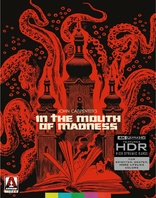

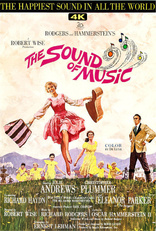



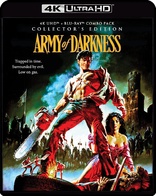
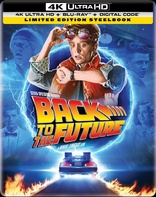
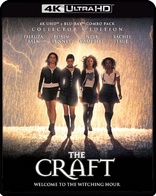

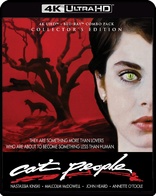












 Threaded Mode
Threaded Mode